Archiv článků
Prohlédněte si všechny články a objevte více zajímavých témat!
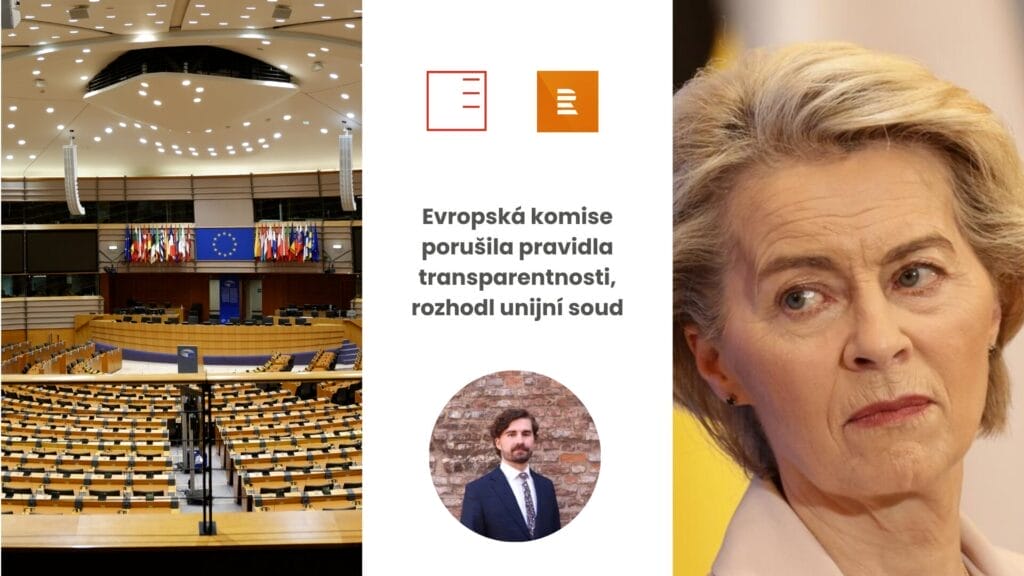
Radiožurnál | Evropská komise porušila pravidla transparentnosti, rozhodl unijní soud
Unijní soud rozhodl, že Evropská komise pochybila, když odmítla zveřejnit textové zprávy, které si předsedkyně Ursula von der Leyen v době pandemie vyměňovala s ředitelem společnosti Pfizer. Podle soudu tím porušila pravidla transparentnosti a rozhodnutí Komise se ruší. Situaci pro Radiožurnál komentoval zástupce ředitele Institutu EUROPEUM Viktor Daněk.
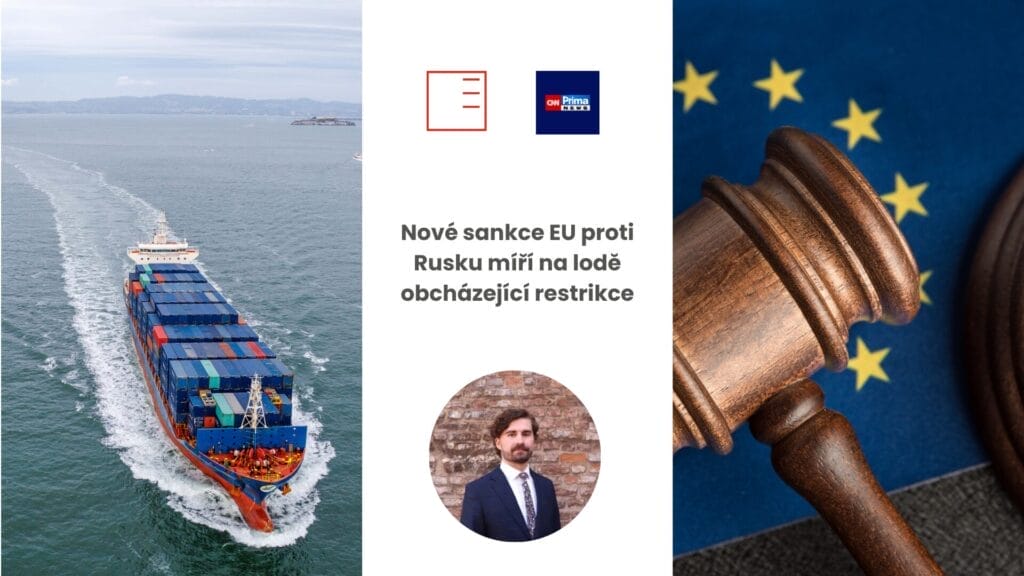
CNN Prima News | Nové sankce EU proti Rusku míří na lodě obcházející restrikce
Evropská unie schválila už sedmnáctý balíček sankcí proti Rusku v reakci na pokračující agresi na Ukrajině. Nová omezení se zaměří mimo jiné na lodě ze stínové flotily, které Moskva využívá k obcházení dosavadních restrikcí. Situaci pro CNN Prima News komentoval ředitel pražské kanceláře Institutu EUROPEUM Viktor Daněk.
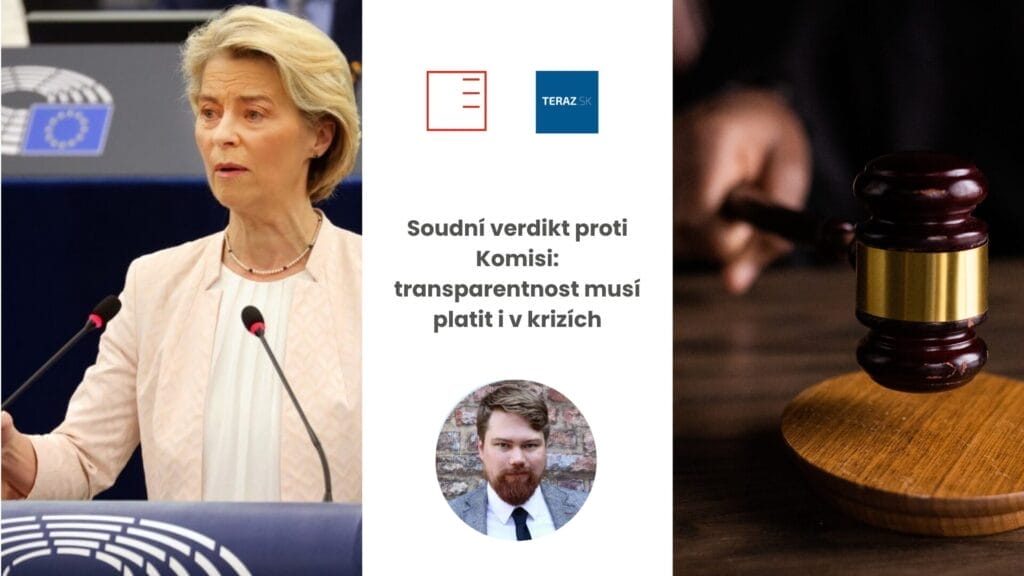
Teraz.sk | Soudní verdikt proti Komisi: transparentnost musí platit i v krizích
Středeční verdikt Soudního dvora Evropské unie, který potvrdil pochybení Evropské komise při odmítnutí zveřejnit textové zprávy mezi Ursulou von der Leyenovou a šéfem Pfizeru, představuje podle výkonného ředitele Institutu pro evropskou politiku EUROPEUM Martina Vokálka důležitý precedens pro celou EU.
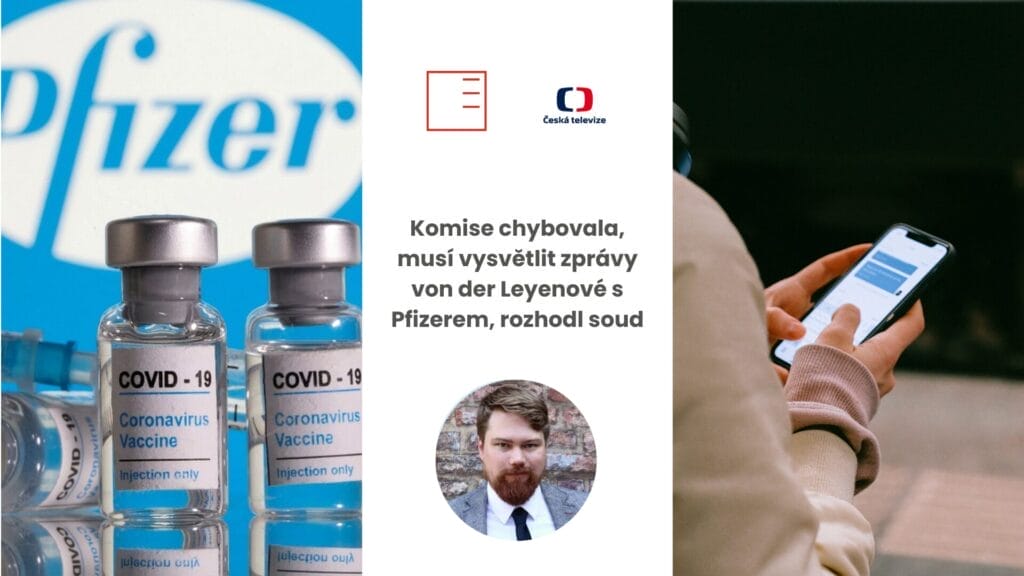
Česká televize | Komise chybovala, musí vysvětlit zprávy von der Leyenové s Pfizerem, rozhodl soud
Evropská komise podle rozhodnutí unijního soudu chybovala, když odmítla zpřístupnit zprávy mezi Ursulou von der Leyenovou a šéfem Pfizeru Albertem Bourlou. Komunikace se týkala miliardového nákupu vakcín. Komise uvedla, že verdikt respektuje a připraví nové odůvodnění svého postupu. Pro Českou televizi komentoval výkonný ředitel Institutu EUROPEUM Martin Vokálek.
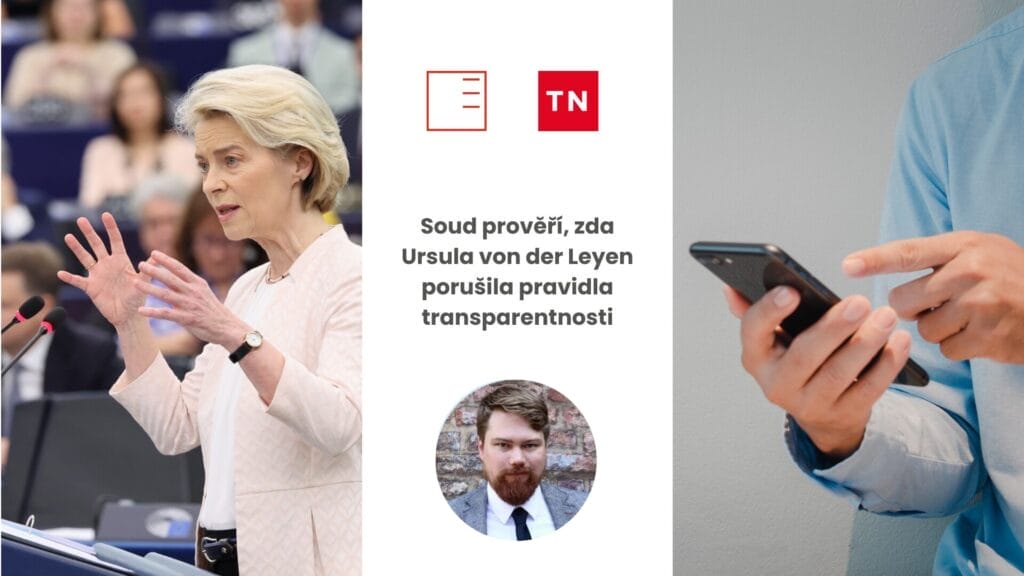
TN Live | Soud prověří, zda Ursula von der Leyen porušila pravidla transparentnosti
Unijní soud posoudí, zda předsedkyně Evropské komise Ursula von der Leyen porušila pravidla transparentnosti, když odmítla zveřejnit textové zprávy, které si v době pandemie vyměňovala s ředitelem společnosti Pfizer. Soud má rozhodnout, zda šlo o zatajování informací. Situaci pro televizi Nova komentuje ředitel Institutu EUROPEUM Martin Vokálek.
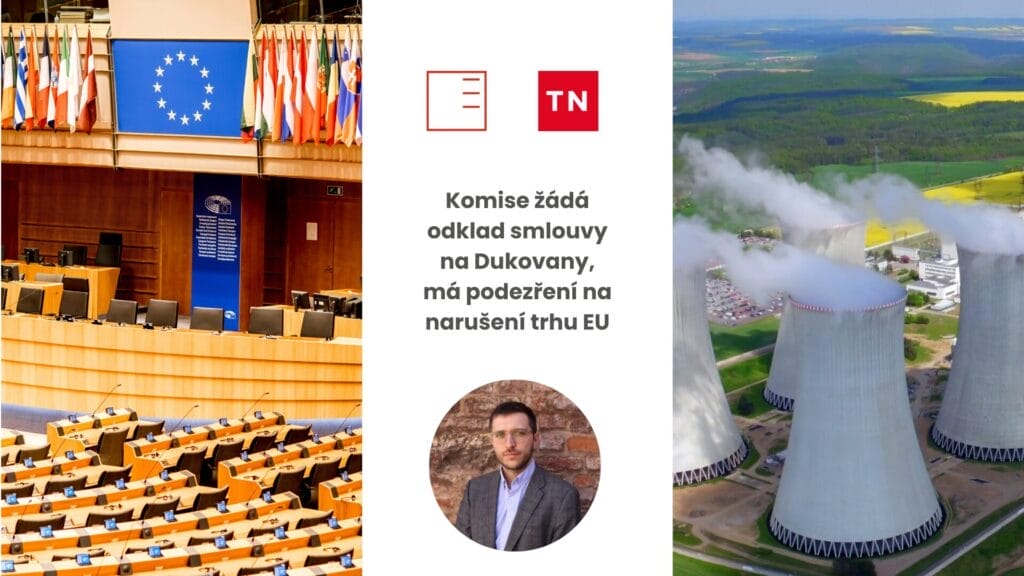
TN Live | Komise žádá odklad smlouvy na Dukovany, má podezření na narušení trhu EU
Evropská komise požádala Českou republiku o odložení podpisu smlouvy na výstavbu jaderné elektrárny Dukovany. Prověřuje totiž, zda korejská společnost KHNP nezískala při tendru výhody, které by mohly narušit vnitřní trh Evropské unie. Pro televizi Nova komentoval analytik Institutu EUROPEUM Filip Křenek.
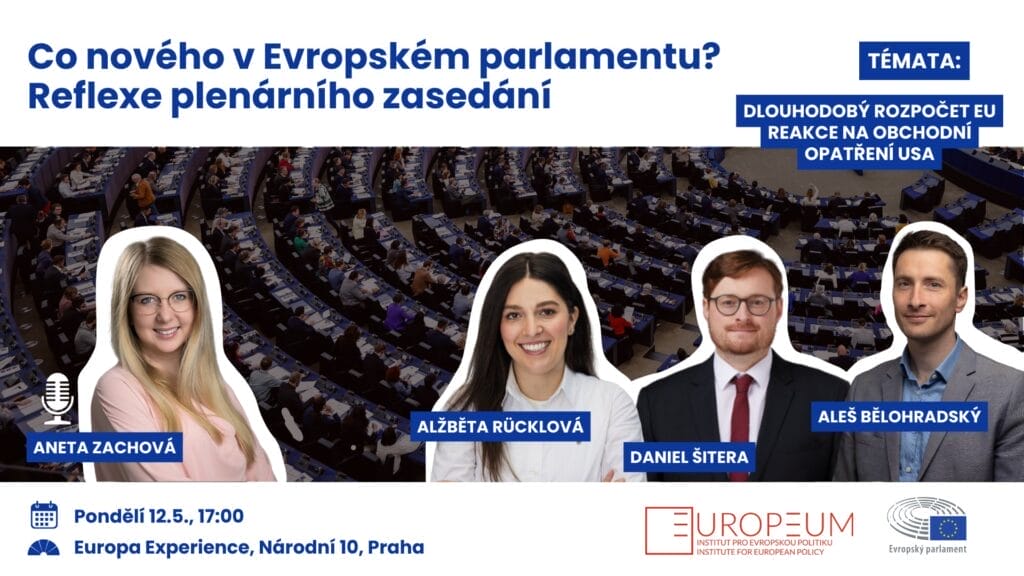
Co nového v Evropském parlamentu? Reflexe plenárního zasedání
Rádi bychom Vás pozvali na další ze série debat, které přináší aktuální pohled na klíčová témata projednávaná na plenárních zasedání Evropského parlamentu. Cílem diskusí je nabídnout srozumitelný přehled přijatých rozhodnutí a jejich širší dopad na Evropskou unii i Českou republiku. Každá debata poskytne prostor pro reflexi zásadních legislativních a politických kroků Evropského parlamentu, přímou diskusi s europoslanci a experty, a umožní otevřený dialog s odbornou i širokou veřejností.
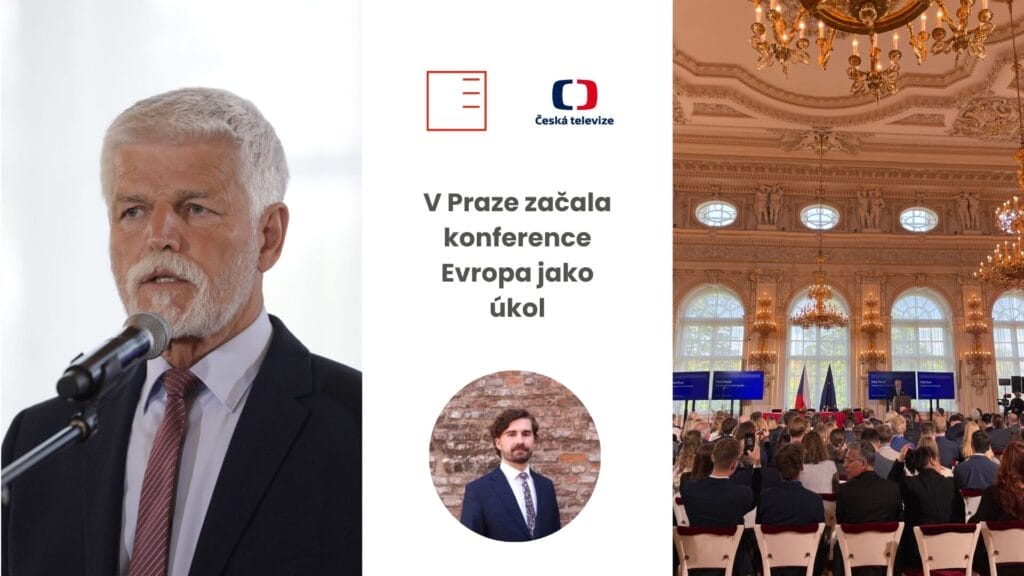
ČT24 | V Praze začala konference Evropa jako úkol
Prezident Petr Pavel zahájil konferenci Evropa jako úkol, která se koná při příležitosti Dne Evropy a 21. výročí vstupu České republiky do EU. Téma konference přímo z Pražského hradu komentoval zástupce ředitele Institutu EUROPEUM Viktor Daněk.
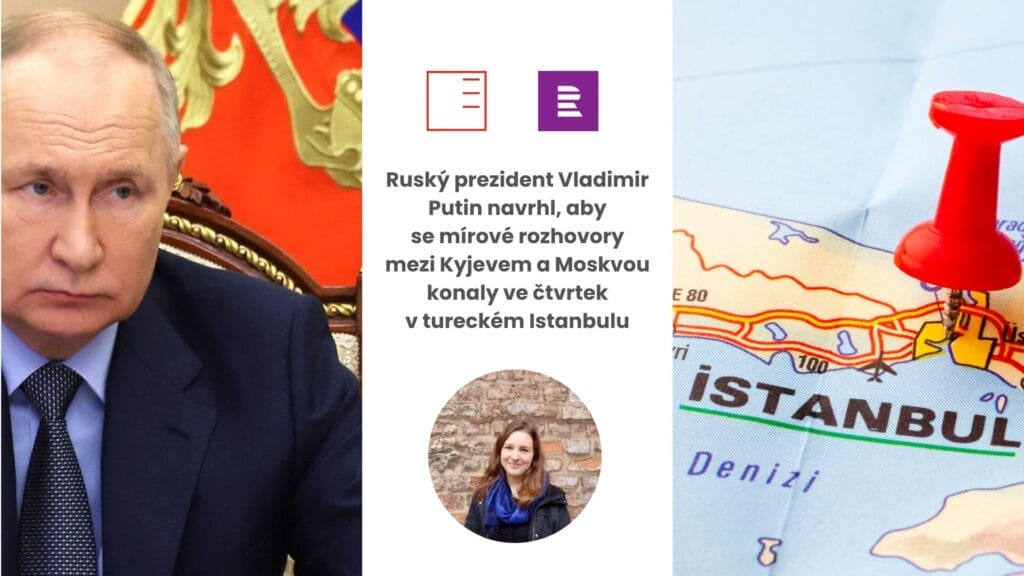
ČRo Plus | Ruský prezident Vladimir Putin navrhl, aby se mírové rozhovory mezi Kyjevem a Moskvou konaly ve čtvrtek v tureckém Istanbulu
Koalice ochotných se sešla v sobotu 10.5. v Kyjevě. Jaké parametry příměří navrhli? Pro ČRo Plus komentuje analytička Institutu EUROPEUM Zuzana Krulichová.
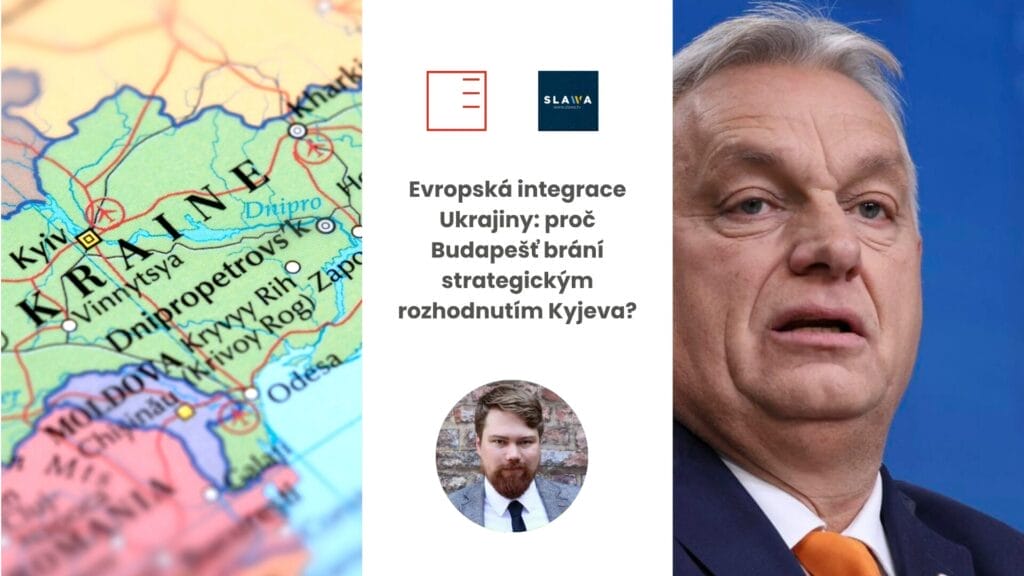
Slawa.tv | Evropská integrace Ukrajiny: proč Budapešť brání strategickým rozhodnutím Kyjeva?
Maďarsko opakovaně využilo svého práva veta nejen k nátlaku na Ukrajinu v bilaterálních otázkách, ale také k získání ústupků ze strany EU, zejména v rozpočtové oblasti a v oblasti právního státu, říká Martin Vokálek, výkonný ředitel pražského Institutu EUROPEUM.
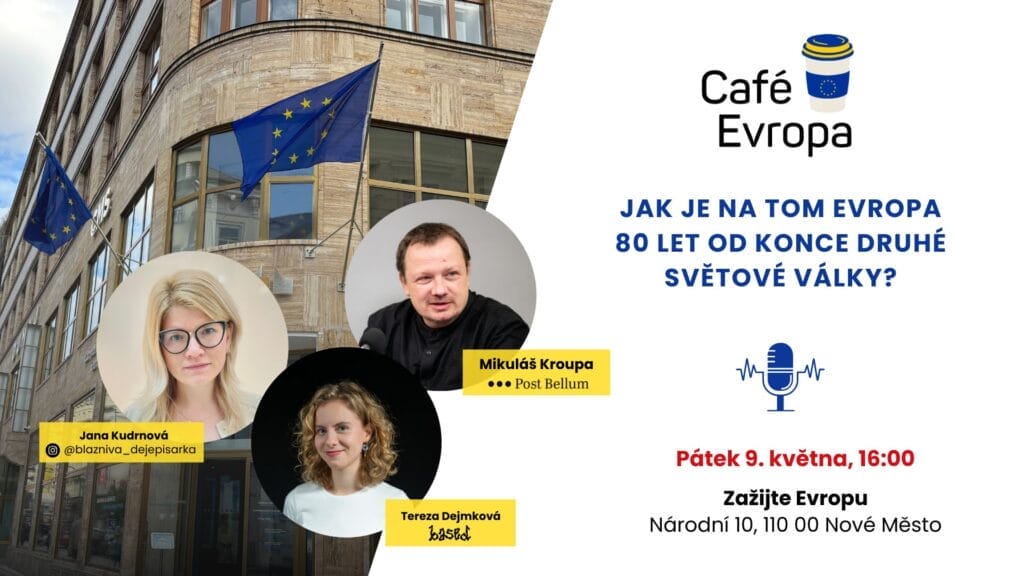
Veřejné natáčení podcastu - Jak je na tom Evropa 80 let od konce 2. světové války?
Druhá světová válka byla zásadní událostí pro vývoj Evropy a její současnou podobu. Uvědomujeme si to ale dnes ještě? Jak o konfliktu, od jehož konce uběhne letos 80 let, smýšlí mladá generace? A je potřeba si ho stále připomínat?
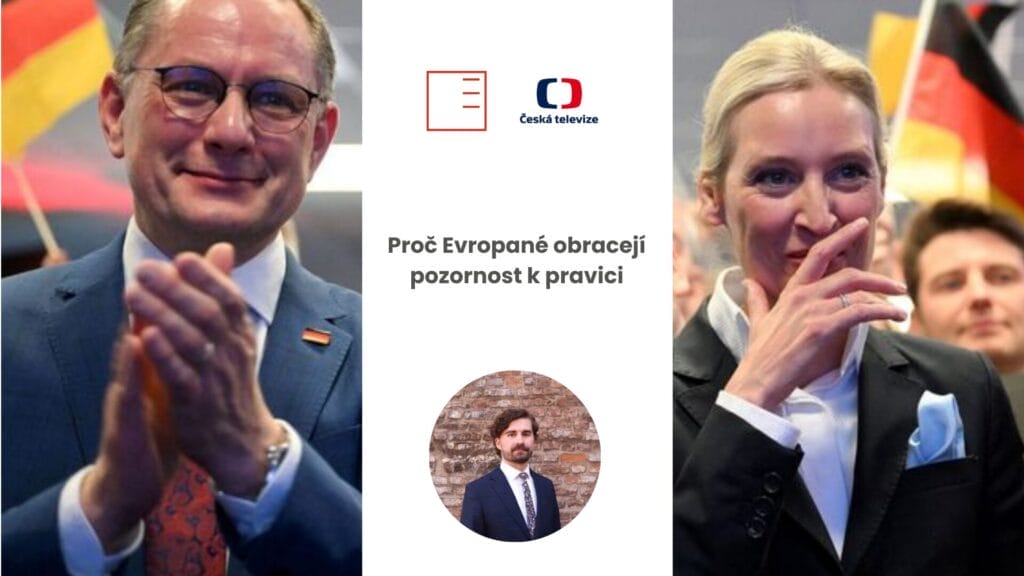
Česká televize | Proč Evropané obracejí pozornost k pravici
Evropa zažívá výrazný posun doprava. V Německu vzbudil velkou pozornost výsledek krajně pravicové AfD, která s 20,8 % skončila druhá a upevnila svou pozici zejména ve východní části země. V Rumunsku pak první kolo prezidentských voleb ovládl euroskeptický nacionalista George Simion, který získal přes 40 % hlasů a postoupil do rozhodujícího kola. Tyto výsledky potvrzují rostoucí podporu krajní pravice napříč Evropou, což představuje výzvu pro tradiční politické strany a evropskou integraci jako celek. Pro Českou televizi komentuje situaci zástupce ředitele Institutu EUROPEUM Viktor Daněk.